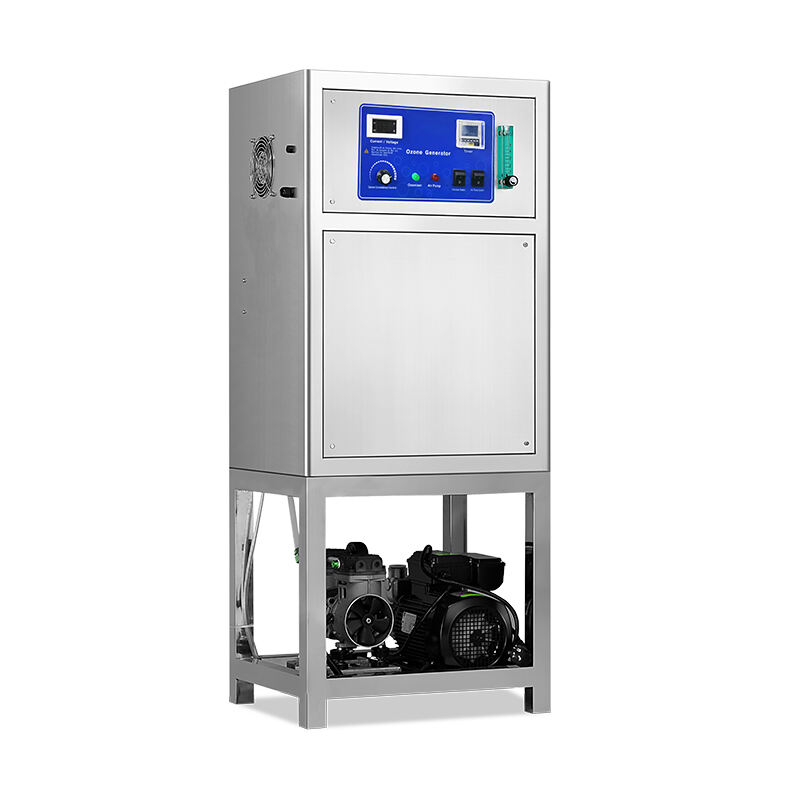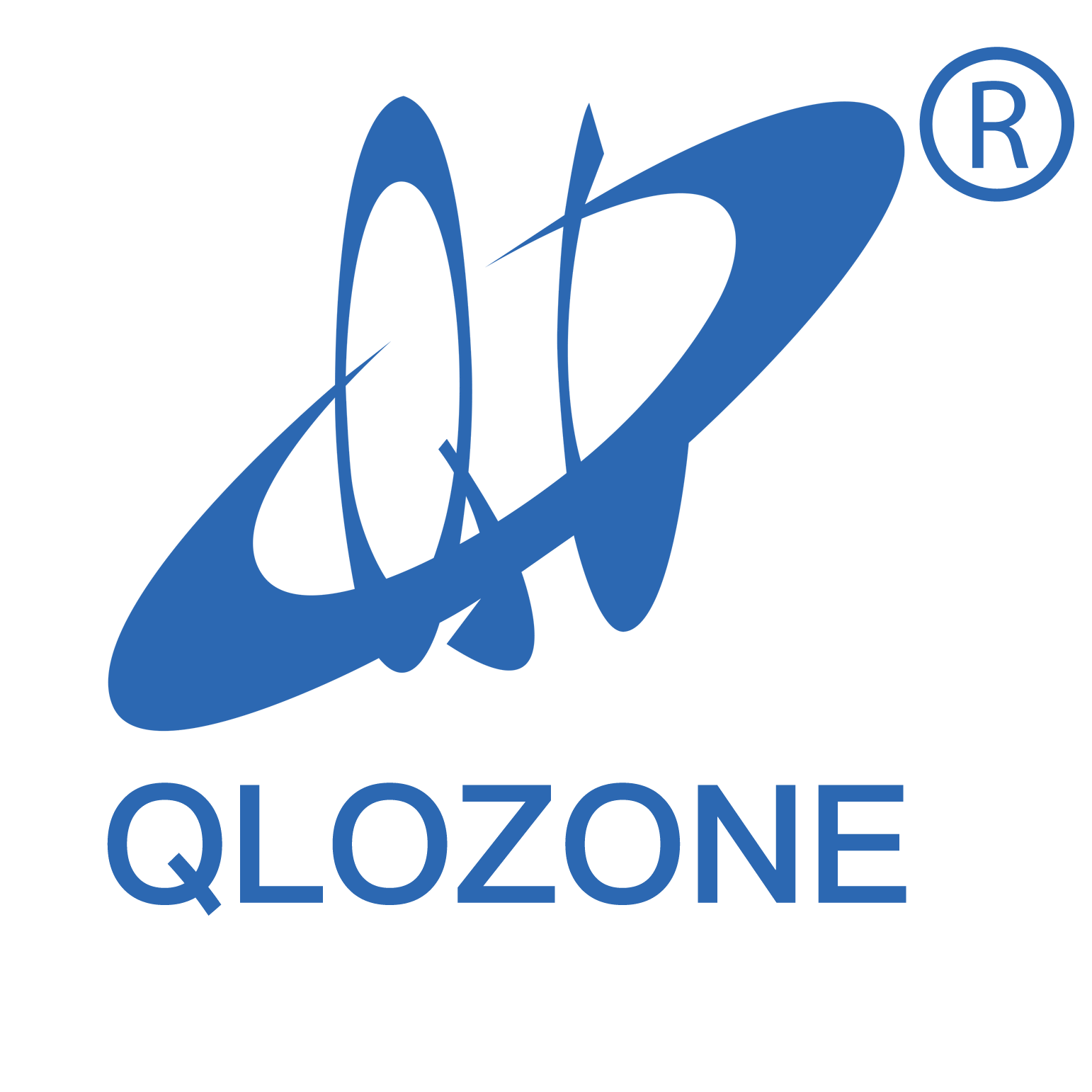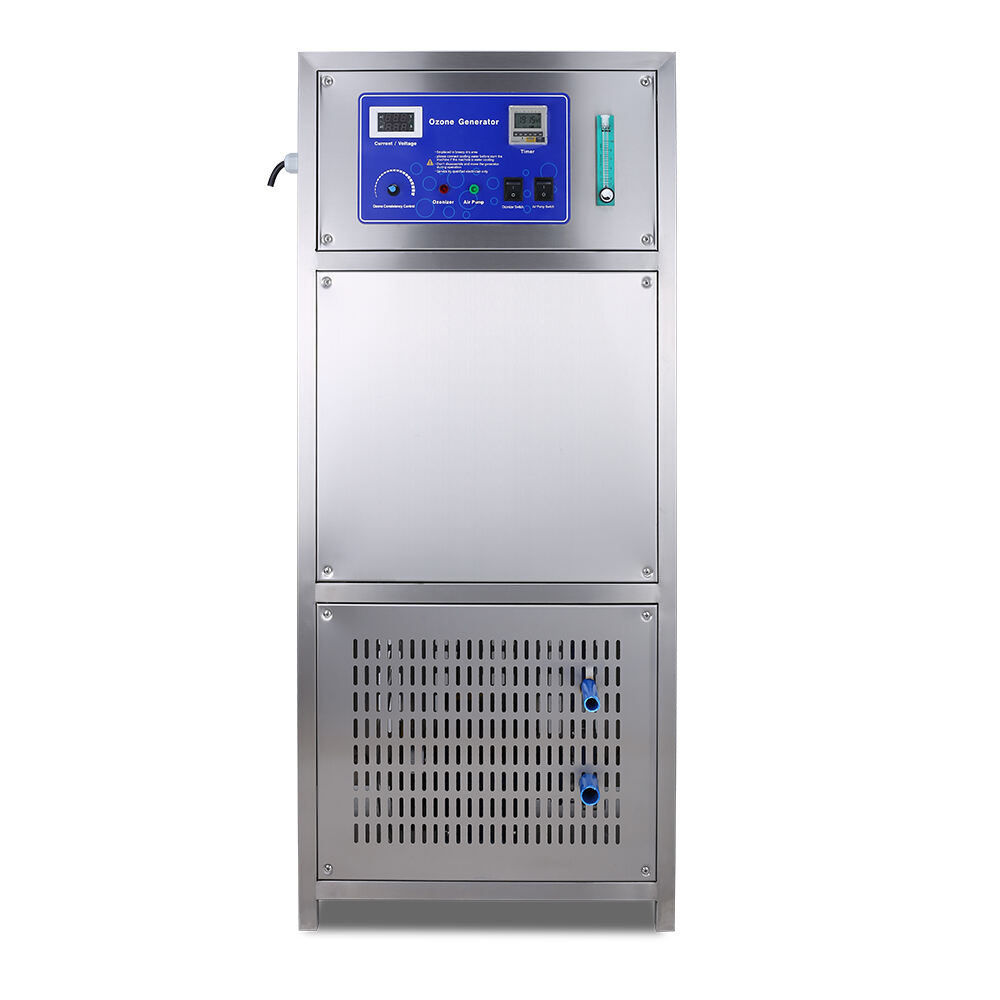현대 물에 대한 이해 소독 솔루션들
수십 년 동안 수질 소독 기술은 크게 발전해 왔으며, 혁신적인 기술들이 보다 효율적이고 환경 친화적인 솔루션을 제공하고 있습니다. 이러한 발전 중 오존수 시스템 오존 시스템은 기존의 화학적 소독 방법에 비해 우수한 대안으로 등장하였습니다. 이 시스템들은 세 개의 산소 원자로 구성된 오존 분자의 자연적인 힘을 활용하여 뛰어난 수질 정화 성능을 제공하면서도 환경 영향을 최소화하고 장기적으로 운영 비용을 절감합니다.
오존 수처리 기술의 과학적 원리
오존 분자가 물을 정화하는 방식
오존수 시스템은 정교하면서도 간결한 과정을 통해 작동합니다. 이 시스템은 전기 방전을 통해 산소 분자를 처리하여 강력한 산화제인 오존을 생성합니다. 물에 주입된 오존 분자는 박테리아, 바이러스 및 기타 유해 미생물과 같은 오염 물질을 능동적으로 찾아 제거합니다. 이 과정의 핵심은 단순함에 있습니다. 소독 역할을 마친 후 오존은 자연적으로 순수한 산소로 분해되어 유해 잔여물을 남기지 않습니다.
고급 산화 공정
오존 정수 시스템의 고도 산화 능력은 기존 화학 처리 방식보다 훨씬 뛰어납니다. 오존의 높은 산화력은 복잡한 유기 화합물을 분해하고 염소 및 기타 화학 물질로는 제거하기 어려운 고질적인 오염 물질을 제거합니다. 이 과정은 밀리초 단위로 진행되어 장시간 접촉 시간이나 추가적인 화학 물질 없이도 빠르고 완벽한 소독을 제공합니다.
오존 처리의 환경적 이점
화학물질 사용량 감소
오존 수처리 시스템을 도입하는 가장 큰 장점 중 하나는 그 환경 영향이 극히 적다는 것이다. 정기적인 운송, 저장 및 잠재적으로 위험한 물질 취급이 필요한 화학 소독 방식과 달리, 오존은 필요할 때마다 현장에서 생성된다. 이를 통해 화학물질 운송에 따른 탄소 배출을 제거할 수 있으며, 사고로 인한 유출이나 환경 오염 위험도 줄일 수 있다.
지속 가능한 물 관리
오존 처리는 화학물질 저장 및 폐기의 필요성을 없앰으로써 지속 가능한 수자원 관리 방식을 지원한다. 이 시스템은 살균제를 수요에 따라 즉시 생산할 수 있기 때문에 시설에서 치료 과정을 정밀하게 제어하면서도 폐기물을 최소화할 수 있다. 또한 처리된 물에 화학 잔여물이 존재하지 않아 물이 환경으로 다시 방출될 때 수생 생태계를 보호하는 데 도움이 된다.
화학 시스템 대비 경제적 이점
장기적인 비용 이점
오존수 시스템의 초기 투자 비용은 기존의 화학 약품 시스템보다 높을 수 있으나, 장기적인 재정적 이점은 상당합니다. 지속적인 화학약품 구매가 불필요해지고 보관 공간이 줄어들며 유지보수 필요성이 최소화됨에 따라 운영 비용이 크게 절감됩니다. 많은 시설에서 투자 회수 기간이 단 2~3년에 불과하다고 보고하며, 그 이후로는 비용 절감 효과가 계속 누적됩니다.
운영 효율성 개선
현대 오존수 시스템의 자동화 기능은 운영 효율성을 향상시키는 데 기여합니다. 이러한 시스템은 수질 파라미터에 따라 처리 수준을 자동으로 조절하도록 프로그래밍할 수 있어 인건비를 절감하고 일관된 결과를 보장합니다. 또한 화학약품의 취급 및 저장이 필요 없어져 소중한 시설 공간을 절약할 수 있으며 관련 보험 비용도 감소합니다.

안전 및 규제 준수
강화된 작업장 안전
안전 측면에서 오존수 시스템은 화학 약품 대체 방식보다 우수합니다. 화학 물질의 저장 및 취급이 불필요해짐에 따라 작업장 위험이 크게 줄어들고 광범위한 안전 절차가 필요하지 않게 됩니다. 최신 오존 시스템에는 고급 안전 기능과 모니터링 기능이 포함되어 있어 안전한 작동을 보장하면서 실시간 성능 데이터를 제공합니다.
규제 기준 충족
오존수 시스템은 다양한 산업 분야에서 수처리 관련 규제 요건을 일관되게 충족하거나 초과합니다. 이 기술은 폭넓은 오염물질에 대해 효과적이며 상세한 운영 기록을 유지할 수 있기 때문에 시설이 변화하는 규제 기준을 준수하는 데 도움이 됩니다. 환경 규제가 점점 더 엄격해지고 있는 가운데 이러한 점은 점점 더 중요해지고 있습니다.
다양한 산업 분야에서의 적용
상업 및 산업 용도
오존수 시스템의 다용도성은 다양한 응용 분야에 이상적입니다. 식음료 산업에서는 이러한 시스템이 생산 라인과 제품 세척을 위한 화학물질 없이 살균할 수 있는 방법을 제공합니다. 산업 시설에서는 냉각탑 유지보수, 공정수 처리 및 폐수 관리에 오존 처리를 활용합니다. 이 기술의 적응성 덕분에 특정 산업 요구 사항에 맞게 규모 조정 및 맞춤화가 가능합니다.
자치구 수처리
많은 지자체들이 오존수 시스템으로 전환하고 있으며, 이는 해당 기술이 우수한 소독 능력과 더 낮은 환경 영향을 제공하기 때문입니다. 이러한 시스템은 신종 오염물질을 효과적으로 제거할 뿐만 아니라 물의 맛과 투명도를 개선합니다. 대량의 물을 효율적으로 처리할 수 있는 능력 덕분에 오존 처리는 지자체 용도로 특히 매력적입니다.
자주 묻는 질문
오존수 시스템은 어떤 유지보수가 필요한가요?
오존수 시스템은 화학 약품을 사용하는 시스템에 비해 일반적으로 최소한의 유지보수가 필요합니다. 정기적인 유지보수는 주로 산소 공급 수준 점검, 센서 모니터링 및 주입 지점의 가끔 있는 청소를 포함합니다. 대부분의 시스템은 분기별 또는 반년에 한 번 실시하는 정기 점검과 함께 연속 운전이 가능하도록 설계되어 있습니다.
오존이 물을 소독하는 속도는 얼마나 빠른가요?
오존 소독은 접촉 후 몇 초에서 몇 분 이내에 신속하게 이루어집니다. 이러한 빠른 작용은 전통적인 화학 처리보다 훨씬 빠르며, 기존의 화학 처리는 일반적으로 유사한 효과를 얻기 위해 더 긴 접촉 시간이 필요합니다. 정확한 시간은 특정 용도와 수질 조건에 따라 달라질 수 있습니다.
오존수 시스템 사용에 제한 사항이 있나요?
오존수 시스템은 많은 장점을 제공하지만 고려해야 할 사항들도 있습니다. 초기 투자 비용이 화학 시스템보다 더 높을 수 있으며, 밀폐된 공간에서는 적절한 환기가 필요합니다. 그러나 이러한 제한 사항들은 일반적으로 장기적인 이점과 개선된 처리 효과에 비해 상대적으로 작습니다.

